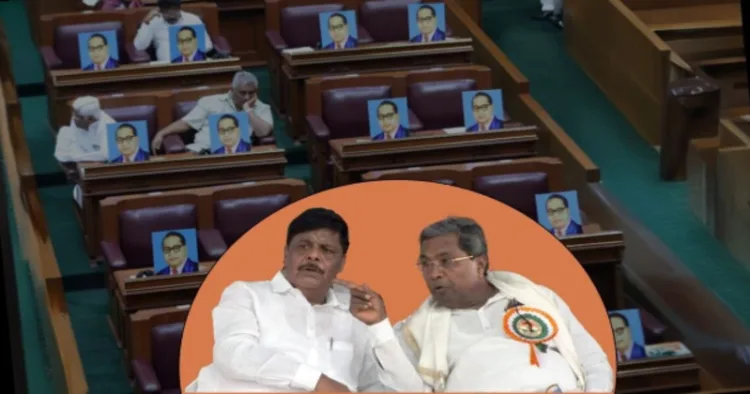Bengaluru: As the academic year comes to a close, a dark cloud looms over the promise of educational equity for Dalit students in Karnataka. Despite the high number of applications submitted for scholarships aimed at Scheduled Caste and tribe students, the state government has failed to fulfill its responsibilities, leaving over 100,000 deserving students in limbo. The situation becomes even more dire when we consider the government’s willingness to disburse funds for various welfare schemes, which starkly contrasts with its inaction in providing essential scholarships to those most in need. This discrepancy raises pointed questions about the government’s commitment to the educational and social upliftment of marginalised communities.
A Stark Contrast in Funding Disbursal
The recent admission by Social Welfare Minister Dr HC Mahadevappa in a session at the winter assembly in Belagavi can only be seen as an indictment of a government that appears indifferent to the plight of Dalit students. While funds for welfare programs like Griha Jyoti, Griha Lakshmi, Annabhagya, and Shakti Yojana have been swiftly approved and disbursed, the same enthusiasm is woefully absent when it comes to scholarship funding. The government has received an overwhelming 9,12,801 applications for various scholarship programs, yet more than 1,05,286 of these remain unapproved as the academic year draws to a close. This disparity is not just a failure of bureaucracy; it is emblematic of deep-rooted systemic neglect.
It is beyond frustrating to realize that, while Rs. 107.34 crore was dispensed to 7,55,125 students, a significant portion of the funding remains stuck in approval purgatory. How can the government, which touts the importance of education for social mobility, justify its sluggish bureaucracy when lives and futures hang in the balance? The numbers paint a grim picture: out of 4,63,347 applications for post-matric scholarships, only 4,448 remain pending, but what does that mean for those who find themselves unrecognized, unapproved, and ultimately, uneducated?
The Biometric Verification Process: A Deliberate Barrier?
One of the explanations put forth for the delays in scholarship disbursal is the mandated Aadhaar-based biometric verification process. The Central Government has stipulated that only students who have completed this verification can have their details transferred to the National Scholarship Portal (NSP). However, reports indicate that Karnataka’s administrative machinery has failed to complete this process in a timely manner, undermining students’ access to critical funding. It raises an alarming question: Is this bureaucratic delay a mere oversight, or is it a deliberate barrier aimed at stifling the aspirations of an already marginalized community?
The disjointed handling of this verification process speaks volumes about the lack of urgency or regard for the education of Dalit students. Are we to accept that the government prioritizes technicalities over the well-being and future of its citizens? This concerning trend highlights a systemic failure, one that is exacerbated by policies that seem to sidestep the very communities they were designed to empower.
It is disheartening to reflect on the lofty promises made by political leaders to uplift backward classes. Siddaramaiah, often hailed as a champion of the backward classes, seems to have failed to deliver on these critical scholarship programs. As of now, the state has not released significant grants intended for the educational empowerment of Dalit students, including Rs. 114.63 crore allocated for pre-matric scholarships.



















Comments